Introduction
Navigating the Australian financial market requires not only a comprehensive understanding of its multifaceted sectors, including banking, investment, insurance, and superannuation, but also a keen awareness of the regulatory landscape. With rising living costs and borrowing rates, the demand for financial advice has surged. However, the increased regulatory burden on financial advisors has made obtaining such advice more costly and complex.
Industry events like the Finance Magnates Pacific Summit provide crucial opportunities for professionals to stay informed about these challenges and developments. Financial consultants must prioritize compliance and risk management while tailoring their strategies to meet client goals within this intricate environment.
Understanding the Australian Financial Market Landscape
The Australian financial market is a multifaceted landscape encompassing sectors like banking, investment, insurance, and superannuation. Navigating this environment requires a deep understanding of the regulatory framework and market dynamics. Financial consultants need to prioritize compliance and risk management, staying vigilant about legislative changes and market conditions that influence client portfolios and strategies.
The rising cost of living and borrowing in Australia has intensified the demand for monetary guidance. However, the costs associated with obtaining such advice have surged, often exceeding inflation rates. The underlying issue arises from a complex set of rules that mandates extensive documentation, such as Statements of Advice (SoA) and Product Disclosure Statements (PDS), for personal advisers. This compliance load not only pressures advisors but also leaves many Australians without crucial monetary guidance.
Events such as the Finance Magnates Pacific Summit (FMPS) provide valuable opportunities for professionals in the finance sector to keep informed about these challenges. Planned for August 27-29 in Sydney, FMPS will bring together industry leaders to share insights and explore new guidelines and market developments. Attendees can engage in workshops, keynotes, and panels covering crucial topics such as online trading, FinTech, payments, and crypto.
Furthermore, the Australian Securities and Investments Commission (ASIC) has mandated a registration process for advisors, following recommendations from the Royal Commission into Misconduct in the Banking, Superannuation, and Services Industry. Adhering to these standards is essential as oversight pressures continue to influence the advisory environment.
By thoroughly analyzing market trends and economic indicators, consultants can develop customized monetary solutions that align with both objectives and regulatory standards, ensuring effective planning and management amidst a challenging regulatory environment.
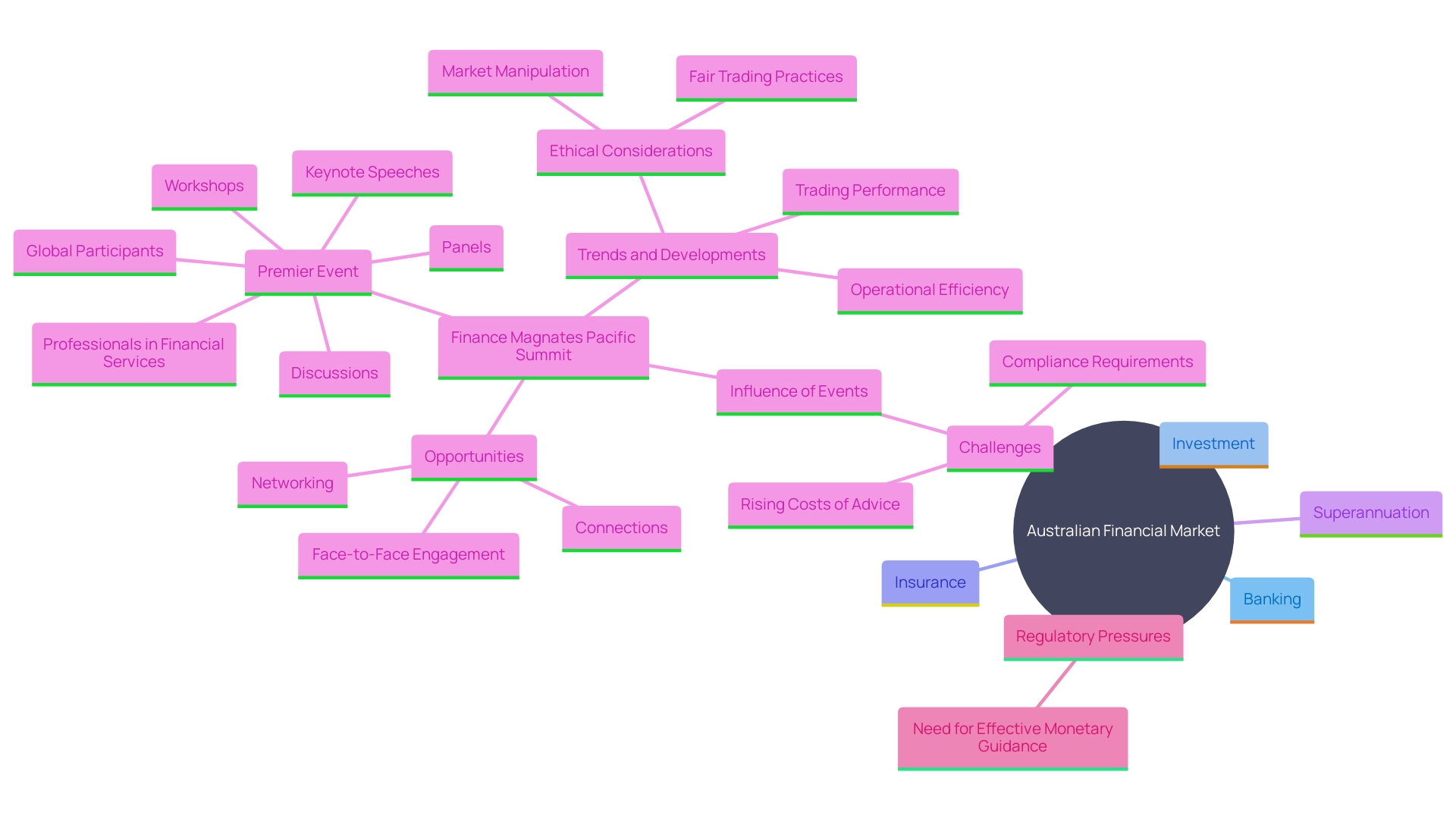
Key Trends in Financial Consulting
The financial consulting landscape is undergoing a significant transformation driven by technological advancements and evolving client needs. Consultants are now utilizing information analytics and artificial intelligence (AI) to improve decision-making processes. "AI and information mining, combined with machine learning and statistical analysis, are the pillars of this transformation, enabling the delivery of more personalized and efficient services.".
By meticulously analyzing customer data, monetary organizations can tailor their services to meet individual needs, ranging from custom investment advice to tailored banking services. This shift towards personalized service is a direct response to the growing demand for monetary solutions that resonate with personal economic goals and lifestyles. As a result, monetary services are now more engaging and satisfying for customers.
Furthermore, the focus on sustainable and ethical investing is increasing, mirroring societal transitions towards responsible economic practices. Financial institutions are increasingly recognizing the need to balance innovation with responsibility, setting the stage for a future where finance is not only more efficient and customer-centric but also more ethical and inclusive.
As clients seek more personalized services, consultants must adapt their offerings to meet these evolving expectations. This includes integrating new technologies like AI to automate routine processes, enabling advisors to dedicate more time to personalized consulting. AI can also provide valuable insights in real-time and automatically generate tailored advice, making it a crucial tool for contemporary advisors.
However, the rapid pace of technological advancement also brings challenges. Companies must dedicate themselves to learning and evolving, frequently revising their models in accordance with new information, trends, and best practices. Ensuring adherence to increasingly complex regulations, particularly those involving personal data and privacy, is another critical aspect that consultants must navigate.
In summary, the convergence of AI and embedded finance presents a transformative opportunity for the sector of finance. By driving innovation while upholding trust, transparency, and ethical standards, advisors can deliver value through innovative solutions that meet the evolving needs of their clients.
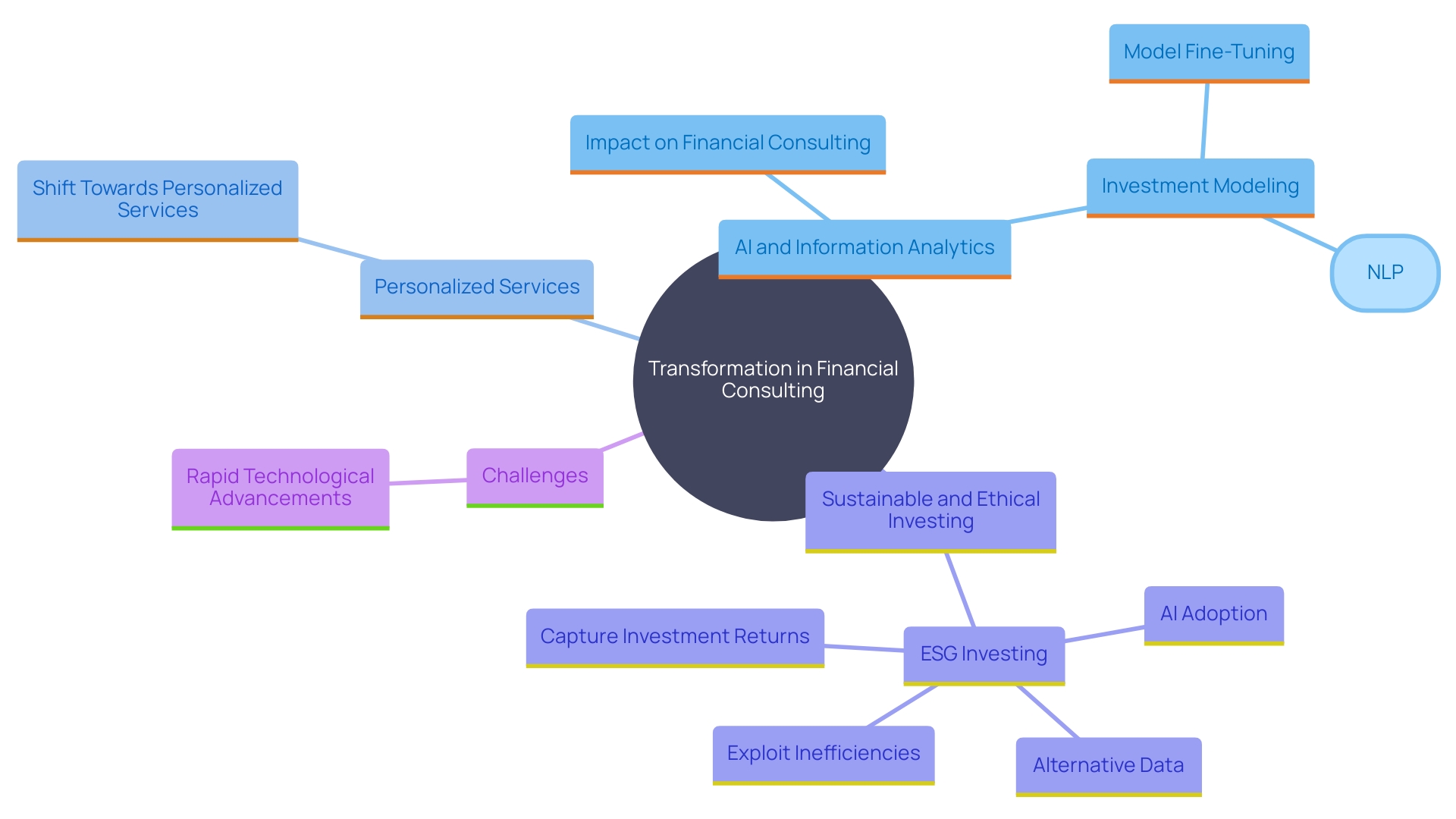
Challenges in Financial Planning Administration
Navigating economic planning administration requires addressing several critical challenges, including regulatory compliance, effective documentation, and technology integration. 'Ensuring adherence to monetary regulations is essential, as non-compliance can result in substantial penalties.'. The growing significance of predictive analytics in budget planning emphasizes the necessity for precise and clear record-keeping. 'Predictive analytics, which involves interpreting monetary data to forecast future outcomes, is becoming indispensable for solving complex business problems and improving performance.'.
Moreover, embracing technological advancements is crucial for modernizing financial operations. 'Strategic alliances, like the one between Croesus and Mako Financial Technologies, showcase the advantages of merging wealth management solutions to improve productivity and simplify customer onboarding processes.'. This integration addresses the long-standing frustration of wealth managers over the lack of seamless IT solutions, thereby improving efficiency and client communication.
Furthermore, protecting sensitive financial information against security threats is crucial. Ensuring the quality and accuracy of customer information not only builds trust but also forms the foundation for robust fraud prevention strategies. Financial institutions must adopt ongoing data hygiene processes to maintain data integrity and prevent security breaches. As the economic landscape evolves, leveraging predictive analytics and advanced technology solutions will be key to navigating the complexities of planning administration effectively.
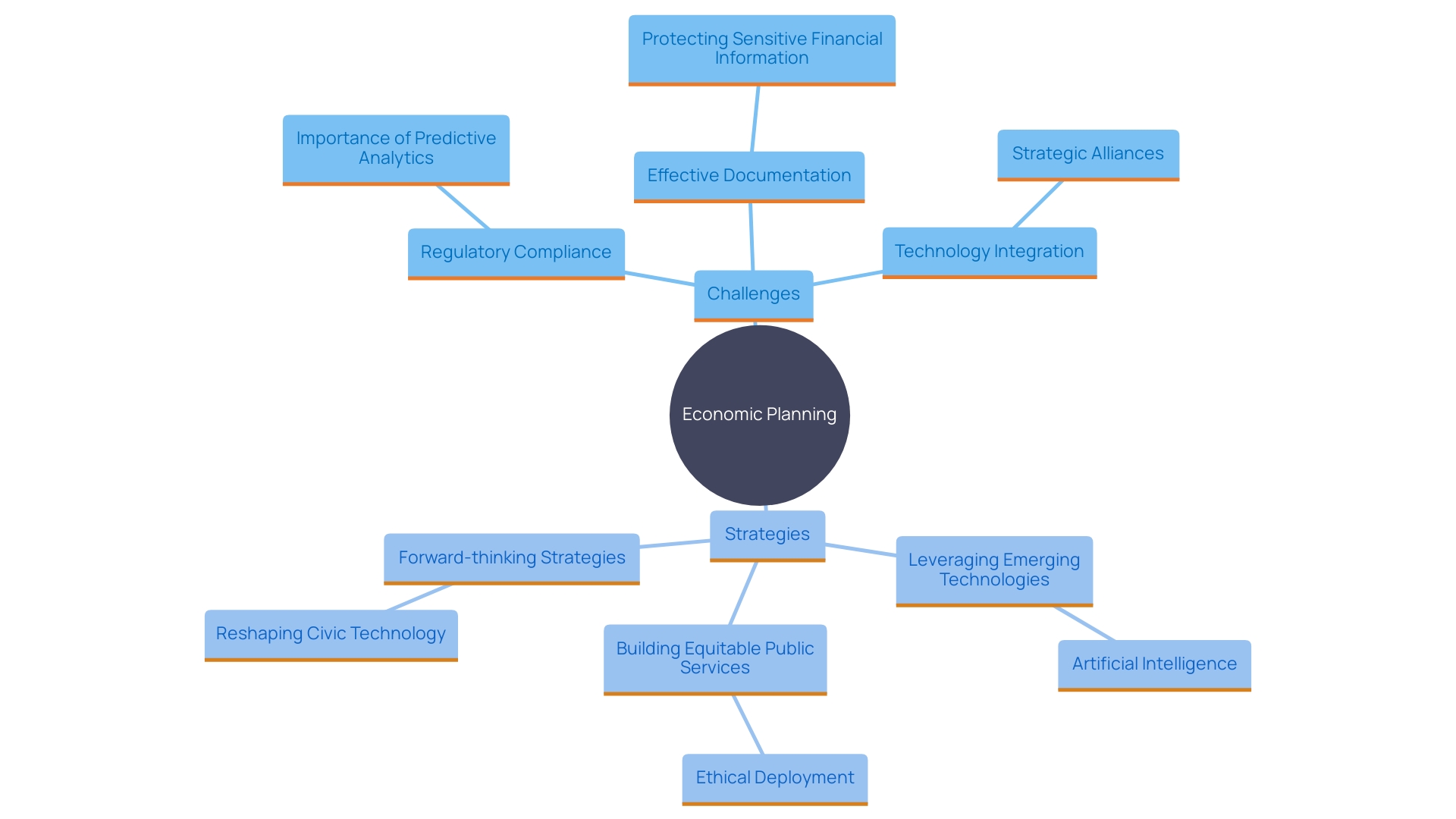
Navigating Commercial Finance in 2024
As companies encounter rising economic pressures, managing commercial finance will necessitate a proactive approach. Consultants should concentrate on evaluating individuals' monetary conditions thoroughly and handling debt efficiently. 'Structuring new financing arrangements that align with customers' long-term goals is critical in this evolving landscape.'.
By fostering strong relationships with banking entities and understanding market dynamics, consultants can better position their clients to secure favorable terms and optimize their capital structure. In particular, the rise of as-a-service financing models and cross-border funding opportunities presents innovative ways to manage economic stress.
For example, utilizing automation and data analytics can help streamline processes and enhance planning efficiency. According to McKay, the as-a-service model allows companies to finance their entire balance sheet, offering greater flexibility and resilience. This approach is particularly beneficial for SMEs who face significant barriers in accessing traditional financing due to their smaller capital base and higher risk profiles.
Moreover, nearly 50% of late payments can be traced to inefficient billing practices, as highlighted by the 2022 Atradius study. By investing in the right CRM technology and addressing these inefficiencies, consultants can help businesses improve cash flow and liquidity management.
The commercial payments landscape is undergoing a metamorphosis, and adapting to these changes is essential for fostering growth and stability. As Mike Kapoor of Commerzbank notes, maintaining strong relationship banking practices remains crucial, even as market conditions fluctuate. With the right strategies and tools, consultants can guide their clients through the complexities of commercial finance and ensure long-term success.
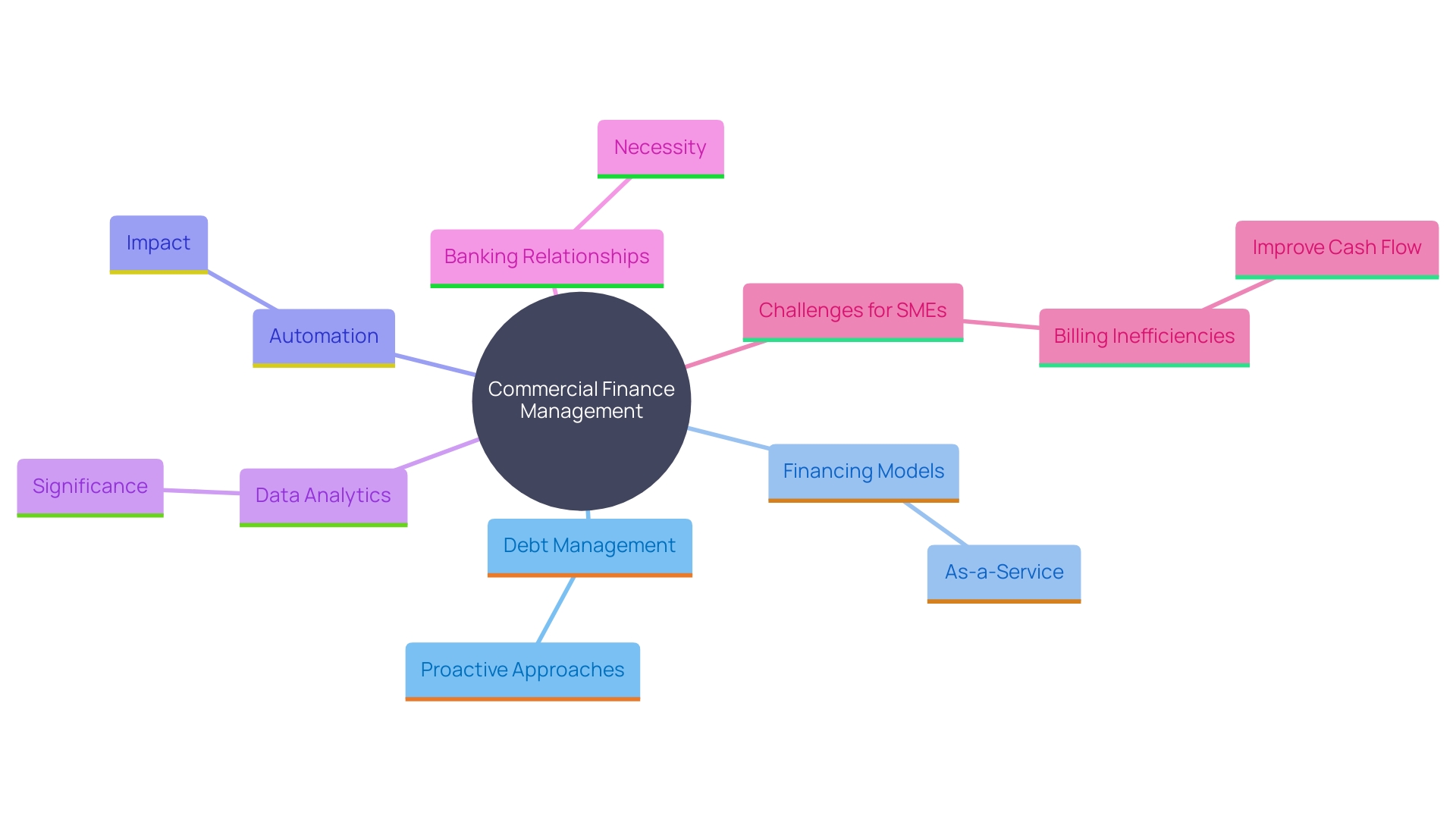
Financial Health Checks and Insolvency Services
Regular monetary health assessments are crucial for maintaining the operational stability of businesses. Consultants must establish robust frameworks to evaluate cash flow and overall monetary health, allowing for the early detection of potential insolvency risks. During unpredictable economic periods, solutions like restructuring or strategic partnerships can provide businesses with the necessary tools to navigate economic distress. Offering targeted insolvency services helps clients mitigate risks and ensures sustainable growth.
The downfall of Silicon Valley Bank (SVB) emphasized the weaknesses within the economic system. This event underscores the importance of having effective insolvency frameworks. The World Bank's B-Ready flagship report emphasizes using out-of-court workouts (OCWs) as a flexible method to resolve asset issues during crises, preventing the liquidation of viable companies and ensuring higher creditor repayment rates.
To further illustrate, the Federal Reserve Board announced the end of the Bank Term Funding Program, emphasizing the need for economic resilience and innovation to enhance the survival chances of institutions. Studies suggest that innovation combined with company traits and economic resilience greatly aids in the survival of monetary institutions.
Therefore, implementing comprehensive financial assessments and exploring strategic solutions can equip businesses to withstand financial challenges and promote long-term stability.
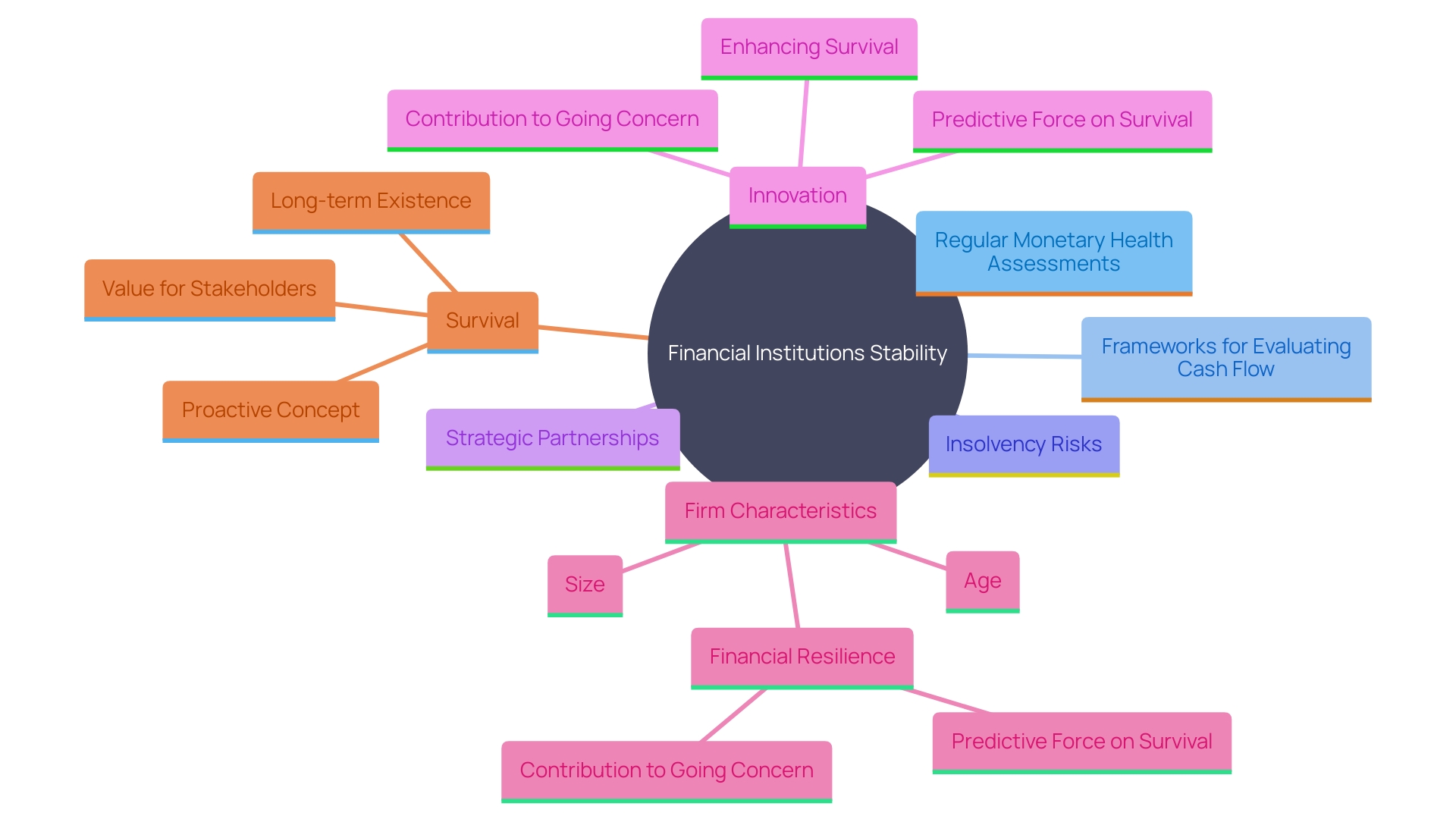
Conclusion
The Australian financial market's complexity necessitates a thorough understanding of its sectors and regulatory landscape. Financial consultants are challenged to meet the growing demand for advice while managing stringent compliance requirements, which can hinder access to essential guidance for many Australians. Events like the Finance Magnates Pacific Summit are vital for professionals to stay informed and adaptable.
Technological advancements in data analytics and artificial intelligence are reshaping the consulting field, allowing for personalized financial solutions that align with client goals while emphasizing sustainable investing. However, consultants must remain vigilant about regulatory compliance and data security in this rapidly evolving environment.
In commercial finance, a proactive approach is essential. Consultants should conduct comprehensive financial assessments, effectively manage debt, and foster strong relationships with financial institutions. Embracing innovative financing models and improving billing practices can enhance cash flow management, supporting clients’ long-term stability.
Regular financial health checks and targeted insolvency services are critical for mitigating risks and ensuring sustainable growth, particularly during uncertain economic periods.
In conclusion, the future of financial consulting in Australia will depend on the successful integration of compliance, technological innovation, and personalized strategies. By embracing these elements, consultants can deliver value-driven solutions that empower clients to navigate the complexities of the financial landscape with confidence and resilience.




